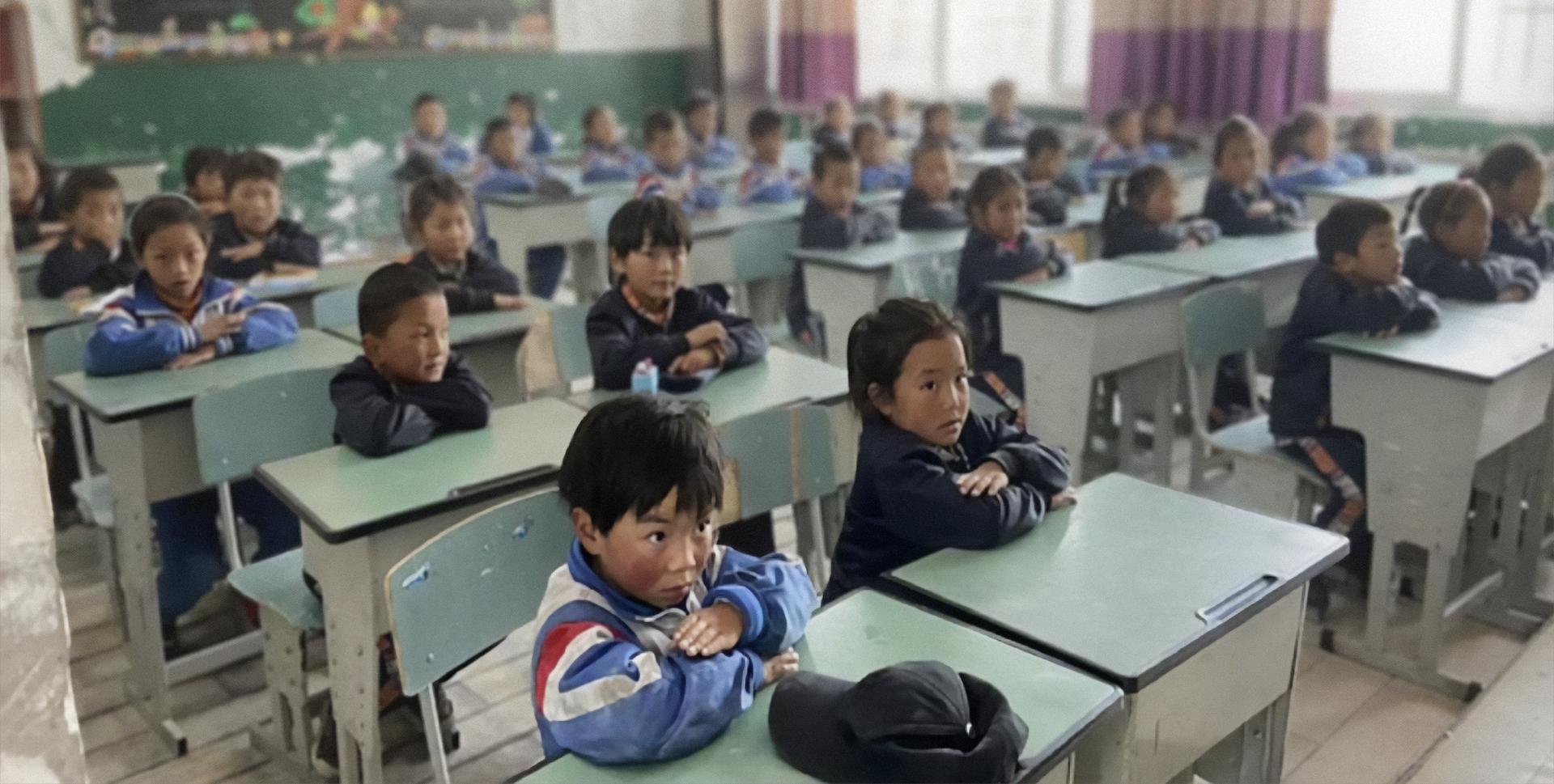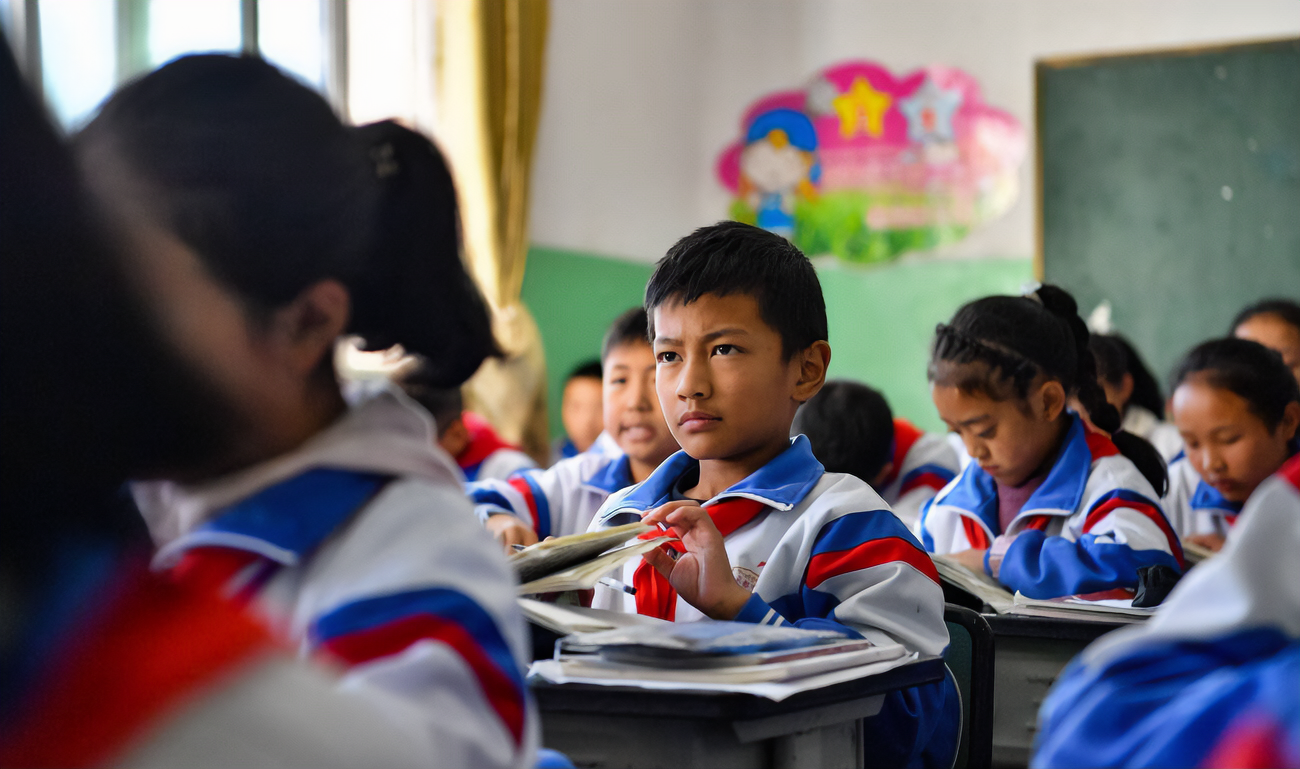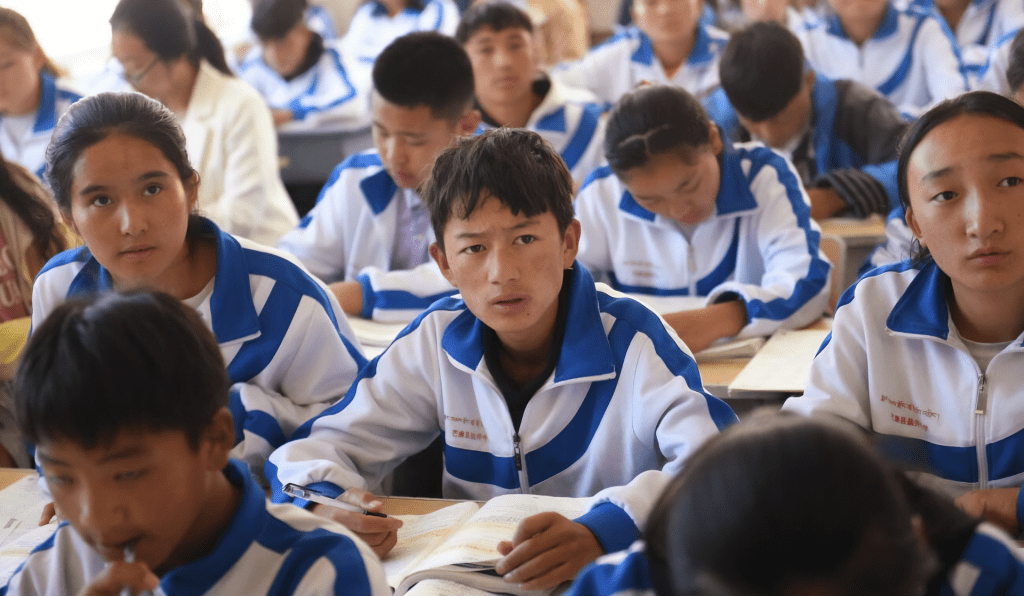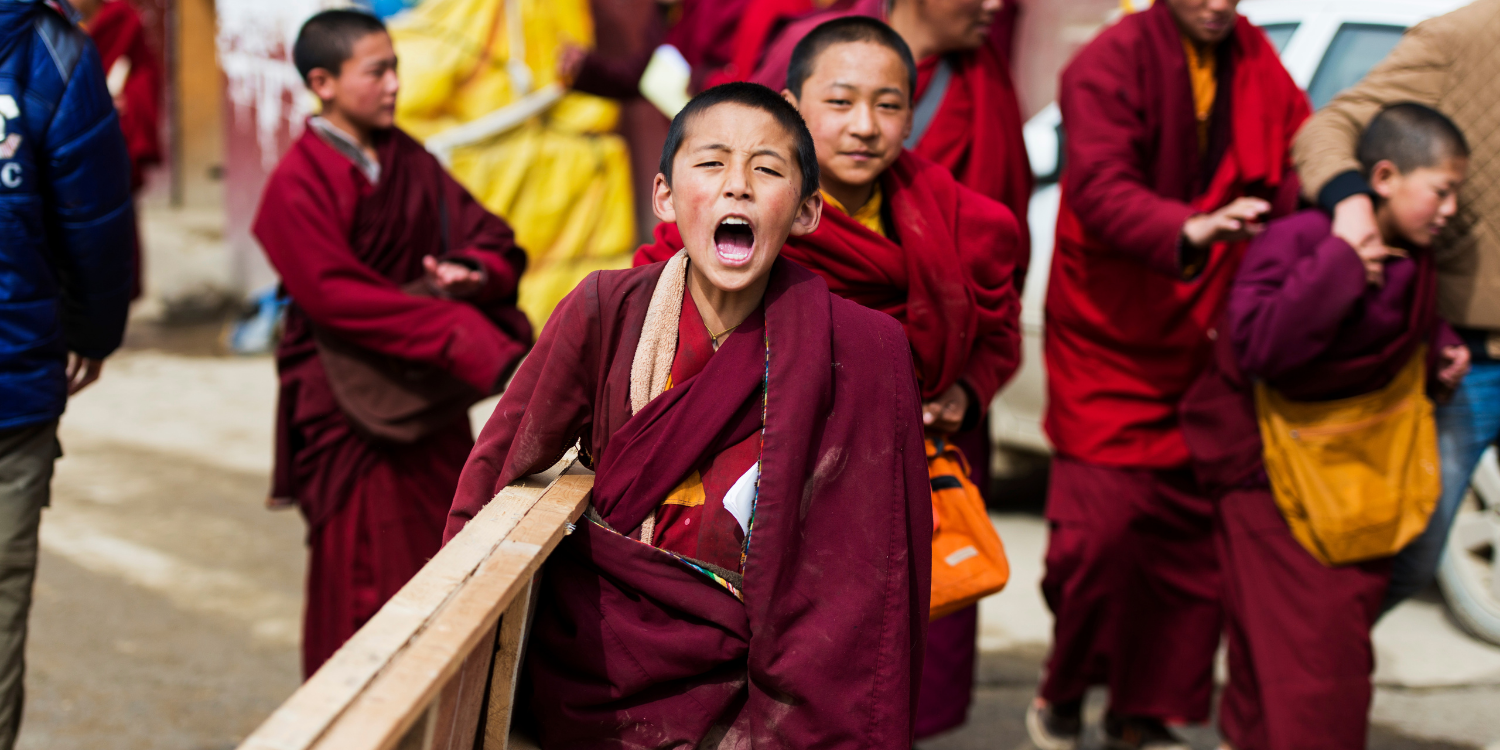
Protect Tibet's Children
The Chinese government has a plan for Tibet’s children: if it gets its own way, the next generation will grow up loyal to the Chinese Communist Party (CCP), and strangers to Tibet.


Recognition of China’s residential schools in Tibet is a start, but more still needs to be done to protect Tibet’s children.
Tibetans and activists celebrated a campaign victory last week as Special Rapporteurs from the United Nations Office of the High Commissioner for Human Rights (OHCHR) officially raised concerns around the cultural assimilation of Tibetan children through China’s residential school system.
A press release from the OHCHR recognises that roughly one million Tibetan children are currently being affected by the residential school system, which “appears to act as a mandatory large-scale programme intended to assimilate Tibetans into majority Han culture.”
In such schools, children as young as four are forced to complete a compulsory education in Mandarin Chinese instead of the Tibetan language. The residential schools do not provide any substantive teaching of the Tibetan language, nor of Tibet’s traditions or culture.
The Special Rapporteurs shared concerns that such an education is causing Tibetan children to lose touch with their language and culture, as well as eroding their ability to communicate with their families. This sentiment echoes the words of Dr. Gyal Lo, a Tibetan educational sociologist who has performed extensive research into the residential schooling system in Tibet; “The Chinese government is tearing families apart and forcing these vulnerable children to become strangers to their own Tibetan culture.”

Children as young as four are made to attend boarding residential schools. Isolated from their family and community, they are given classes entirely in Mandarin Chinese with extremely little education in Tibetan language, culture, and tradition.
The OHCHR press release further recognises the increase in residential schools operating in Tibet, and the number of children attending them. Highlighting that, while residential schools do exist in other parts of China, roughly only 20% of children in other areas attend these schools. In Tibet, it is believed that the majority of children are attending residential schools.
Not only are these schools increasingly being opened in Tibet, Special Rapporteurs report, but rural Tibetan schools are also being shut down. Local schools offering an education in Tibetan language are being replaced with Chinese residential schools that often require children to board far from their hometowns.
The increase in residential schools in Tibet appears to follow an announcement by China’s Central Conference on Ethnic Affairs in August 2021, which called on all ethnic groups to place the interests of the ‘Chinese nation’ above all else.
Special Rapporteurs said that the residential schooling system and policies may violate the Tibetan peoples’ right to freedom from discrimination, as well as rights to education, linguistic, and cultural rights, freedom of religion or belief, and other minority rights.
Commenting on the news, Free Tibet’s Advocacy Officer Tenzin Kunga said: “I welcome the recent public statement by UN experts expressing alarm and concern over Chinese residential schools inside Chinese-occupied Tibet. By highlighting this deliberate policy of forced assimilation, the UN experts have drawn attention of the world to the plight of innocent Tibetan children. They raise a crucial moral question – can the global community allow China to get away with this draconian policy which has eerie similarities to the colonial residential schools that were once widespread in Australia, Canada and the US?”

The Chinese government has a plan for Tibet’s children: if it gets its own way, the next generation will grow up loyal to the Chinese Communist Party (CCP), and strangers to Tibet.

There can be no normal childhood in an abnormal society. The children of Tibet face all the challenges of life under occupation and in many cases are full participants in the struggle to resist it, including the ongoing self-immolation protests. That means they are also victims of the systematic and ever-present abuse of human rights…
